Search Results
Showing results 461 to 480 of 823
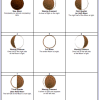
Oreo Phases
Source Institutions
In this activity, learners recreate the lunar phases using the frosting from Oreo® cookies and place the phases in order. Round cream cheese crackers can also be used if cookies are not an option.

Downhill Race
Source Institutions
In this activity, learners explore how two cylinders that look the same may roll down a ramp at different rates.
Fish Family Identification
Source Institutions
In this game, students will become familiar with fish shapes, learn that fish within a given taxonomic family have similar body shapes, and discuss how different body shapes enable fish to survive in

Changing the Density of a Liquid: Heating and Cooling
Source Institutions
Learners investigate how the temperature of water affects its density.

The Turing Test: Conversations with Computers
Source Institutions
This activity aims to stimulate discussion on the question of whether computers can exhibit “intelligence,” or are ever likely to do so in the future.

Exploring Fabrication: Self-Assembly
Source Institutions
In this activity, learners participate in several full-body interactive games to model the process of self-assembly in nature and nanotechnology.

Space Elevator
Source Institutions
In this activity, learners imagine what the world might look like if we could build an elevator to space!
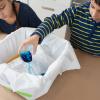
Make a Lake
Source Institutions
Where rainwater goes after the rain stops? And why there are rivers and lakes in some parts of the land but not in others?
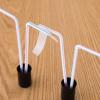
Electroscope
Source Institutions
In this activity about electricity, learners suspend pieces of tape from a straw to construct an electroscope, a device that detects an electrical charge.
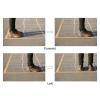
Kidbots
Source Institutions
In this activity, one person acts as a human robot while another acts as their developer by programming their actions.

Safe in the Sun
Source Institutions
In this activity on page 13 of the PDF, use a special plastic card that has been painted with a chemical that changes color when it is in UV light.
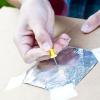
Measure the Sun's Size
Source Institutions
In this activity, learners make their own pinhole viewer in order to measure the size of the sun.

Flip
Source Institutions
In this amazingly simple physics activity (page 5 of the PDF), learners will explore how exerting a force on an object can give it kinetic energy and momentum.

Paint a Fresco
Source Institutions
In this activity on page 7 of the PDF, learners experiment with the interesting designs that can be made by painting on plaster.
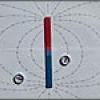
Exploring Magnetic Field Lines
Source Institutions
In this activity, learners explore the magnetic field of a bar magnet as an introduction to understanding Earth's magnetic field. First, learners explore and play with magnets and compasses.

Sun Cookies
Source Institutions
In this activity, learners use candy pieces and a cookie to make an accurate model of the Sun they can eat. Parts of the delicious model include solar granules, sunspots, and solar prominences.
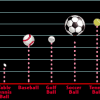
Bouncing Balls
Source Institutions
When baseball was in its infancy, the ball had plenty of bounce. Today's baseball may not seem to have bounce to it at all; if you drop a ball on the field it won't bounce back.
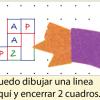
Puntos
Source Institutions
Jugando a este juego de estrategia, los chicos desarrollan su entendimiento sobre cuadrados, área, y perímetro. En su turno, cada jugador hace una línea entre dos punto contiguos en la cuadrícula.

Comparing the Amount of Acid in Different Solutions
Source Institutions
In this activity, learners use detergent solution to compare two solutions containing vinegar and cream of tartar.

Temperature Affects Dissolving
Source Institutions
Learners design their own experiment to compare how well cocoa mix dissolves in cold and hot water. They will see that cocoa mix dissolves much better in hot water. Adult supervision recommended.
